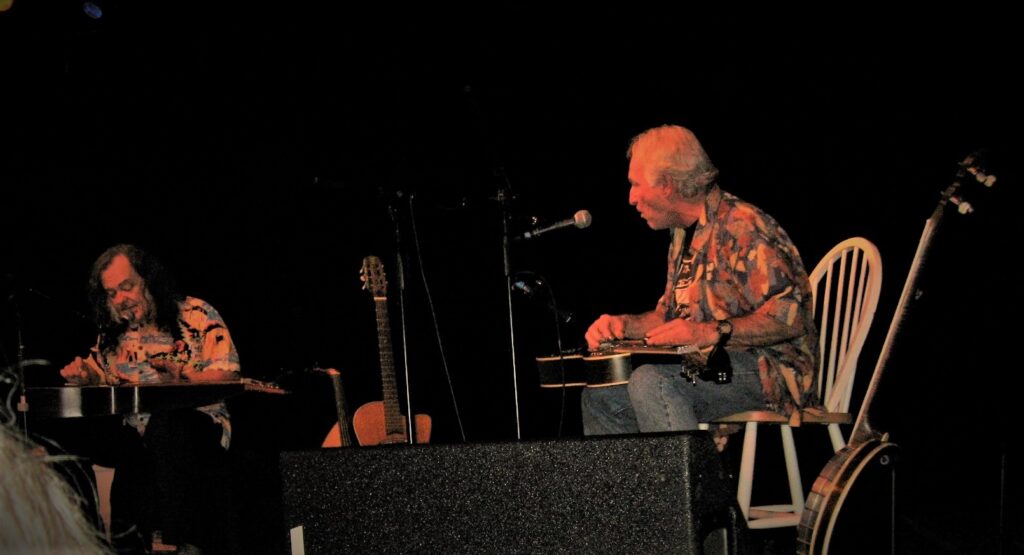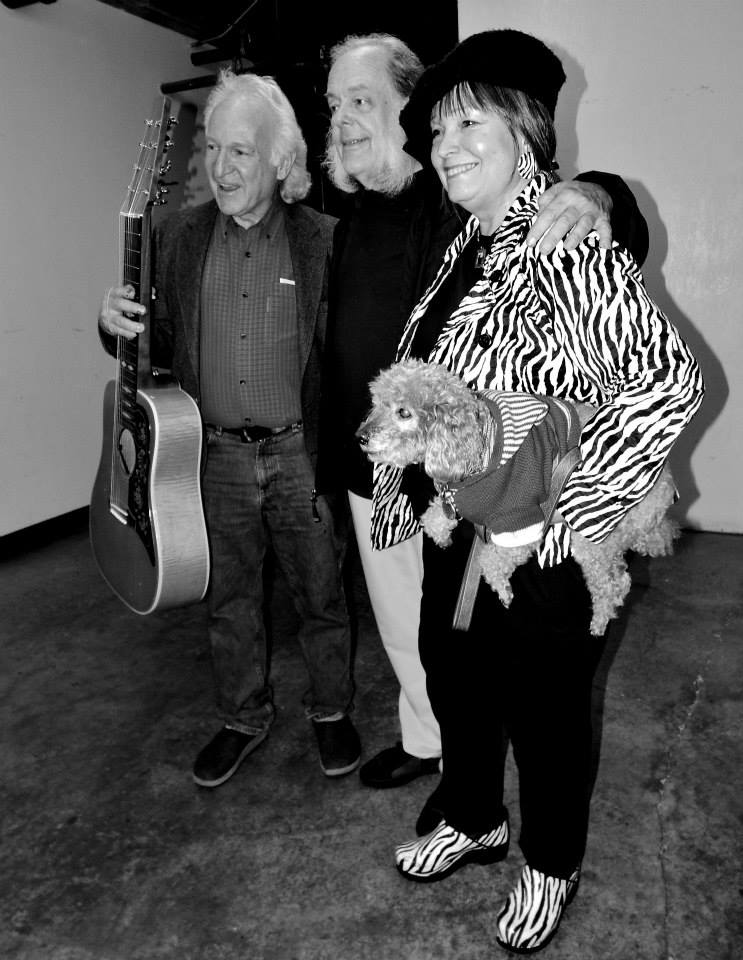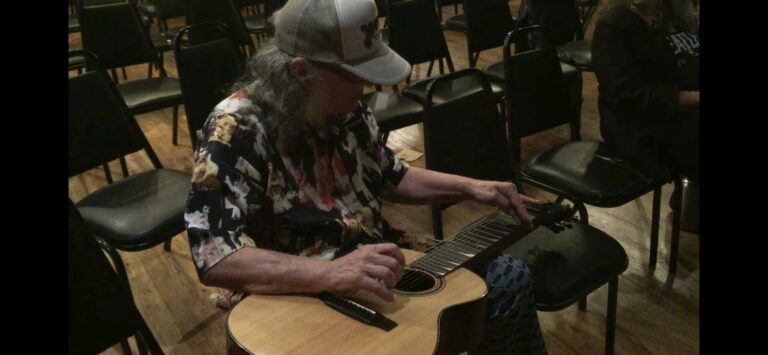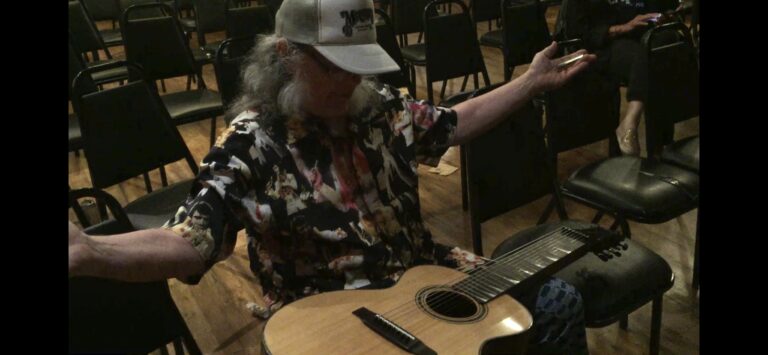David Lindley
David was a dear friend. Bob Weir and I met him in 1968 at the Avalon Ballroom in SF when he was there with Kaleidoscope. He turned us on to the Corn Pickin’ & Slick Slidin’ album by James Burton and Ralph Mooney. I was already a big fan of Mooney from his work with Buck Owens. That album became an instant favorite, and I set out to immerse myself even further in Ralph Mooney’s unique style. Although David‘s musical awareness and command was wider, deeper, and wiser than mine, we shared a love of banjo, guitar, steel guitar, and all kinds of crazy weird and obscure instruments. We delighted in finding our own ways to responsively and passionately contribute to the music of those we play with.
It was sweet to see all the outpouring of love from David’s friends and fans with the news of him passing away on March 3 last year.
A number of his friends and fans expressed feelings that I had, but couldn’t yet put together into anything intelligible.
I loved how Lee Sklar said that the mold wasn’t broken when David came along; he was created freehand!
Joe Craven succinctly said, “My heart is broken…and yet oh so grateful!”
Henry Kaiser‘s video tribute touched me as he waxed poetic over David’s myriad qualities and shared a video affirming them all.
In Wally Ingram‘s Facebook post, you could feel his heart just pouring out his love for David.
I loved to see how Jerry Douglas holds David in such high esteem. Makes sense, of course.
That post brought to mind how David told me he‘d played once on stage with Jerry Douglas—it might have been the first time—and he felt like he had “hooves for hands.” That had me recalling Jerry Garcia at a rehearsal saying, “My fingers aren’t talking to each other!,” and Garcia asking me, “Do you feel like you’re using someone else’s fingers?” I wonder if anyone is immune from that feeling.
Deb Coyle Atiyeh said, ”Every time I heard David play music, I believed, in Magic.“ I adore that.
When I’m composing, arranging, or learning a piece, always part of my drive was to get it so good that it would blow David’s mind. It’s always been really fun to play something that gives David a wide grin or a produces a look of incredulity. A little of that comes from the fact that he understands how much goes into playing any piece, coming up with a composition, or wrestling a phrase into submission. Every time we got together was special. I’d be sharing a new instrument, or play maybe a part a new piece I’d been working on, or even one fully formed. Or we’d go raid a record store or go see one another play. I’ve had the pleasure of playing with him on stage. It’s a great feeling working in that stratosphere.

The tune, In Spite of It All, couldn’t have happened without the inspiration and friendship of David Lindley.
This tune has a descending chord progression. When David and Jackson Browne were recording “Hold Out,” they would occasionally refer to it as “When a Man Loves a Whiter Shade of Hold Out!”
On this track, I’m playing a 10-string Smith Melobar that David gave me. I converted it to 6 strings like he had done to his other one. I’m playing through a 1958 Fender Tweed Deluxe with no other effects beside reverb added in the mix. I played all the tracks on this tune except for the bass, which was masterfully played by Jamie Faunt.
The autoharp I used on this track for left and right rhythm instruments is the same one I loaned David to play with the Trio (Dolly Parton, Linda Ronstadt, & Emmy Lou Harris) on the Tonight Show. That particular show was unique, because they saved money by keeping the backup band in the shadows. I tuned in to see David with my autoharp and all I saw was what David later referenced as the “Ninja Band.” I told him I was no stranger to that. The Tonight Show saved $40 by not showing my face—but only showing my hands—the first time I played there with Hoyt Axton. It was worth it, though. I got to jam with the Doc Severinsen Band during the commercial breaks.
So, here’s a musical tribute to David I first composed and recorded in about 1987. Due to the vicissitudes of the music business, it wasn’t released until 2004, and currently it’s out of print. Have a listen. David liked it; I hope you do.
In Spite of It All, Pete Grant, Fast Idyll ASCAP, from Greetings from California & Beyond
In Spite of It All

Here’s me and Phyllis and Sterling the Wonder Dog backstage at the Crest with David

David plays my Michael Lewis acoustic 8-string lap steel

David loves it!
The Palms Playhouse in Winters, 13 September 2019. This was the last time we saw each other. The first thing he said to me that day was, “Hey, Peter! I’m using your bar!”—the Shubb SP-2 steel guitar bar that Rick Shubb and I designed, which we built based on earlier designs. I was tickled, especially since he was so tickled!
We went to eat after sound check and came back up the stairs. There was someone I didn’t recognize at the door, and he didn’t recognize me. I had preceded Dave up the stairs, so I pointed over my shoulder and said, “He’s OK; he’s with me.”
After the show, I waited until David had spoken with every person who had stayed to talk to him. I smiled at how he would give each person his full attention and be fully engaged. When all those folks had left, I gave him a chance to play the Michael Lewis 8-string built for me two years prior. He had seen my Epiphone Frontier 8-string conversion that Michael had made as a first step towards a full-on design. David had really liked that one, but this one he found pretty much well beyond that.
I plan to have an arrangement of “Call it a Loan” up on this page soon, played on that very instrument.